SUMMARY
This is AI generated summarization, which may have errors. For context, always refer to the full article.

During a recent Rappler event with Cambridge Analytica whistleblower Christopher Wylie and Nobel Laureate Maria Ressa on the challenges posed by artificial intelligence, commonly referred to as AI, I got the chance to chat with one of the attendees. He was very thankful for what Rappler does and wished us well.
He said we don’t deserve the attacks we’ve been getting and pointed out that we’re just not appreciated enough. Why bother, was the unstated question. As a show of support, he offered to help in any way he can from where he preferred to be: in the background.
I was, of course, delighted to hear the very encouraging words which have been coming our way more frequently these days, unlike in the dark and dangerous Duterte years. Contrary to public perception, journalism, stripped to its core, can be a rather lonely endeavor. Driven mainly by public service and the desire to make a difference, no matter how miniscule – sans ego fueled by likes, views, or shares on social media – seeing challenging stories to their conclusion can be tough. And hearing from well-meaning supporters who appreciate what we do can mean a lot.
A journalist sometimes (maybe often) talks to herself or himself, trying to figure out and make sense of facts, details, inconsistencies, irregularities, motivations. Obsession about uncovering what others strive to keep hidden or inscrutable is common. Socializing takes a backseat.
Investigative stories
Such was the case for our investigative team of two reporters, Ryan Macasero and Bonz Magsambol, and researcher Ailla Dela Cruz, who worked on our two-part Department of Education (DepEd) laptops story. They spent long hours poring over documents, pushing numbers on their mobile phones, pursuing elusive interviewees, consulting and chatting endlessly with their editors and other experts to make sure they had the closest approximation of the truth. They needed to make sure they got it right. By May, the team was ready.
Part 1 showed how laptops paid for with public funds and intended for public school teachers ended up being sold in surplus retail shops for just a fraction of their actual unit price. Part 2 uncovered the background of a logistics provider named Transpac Cargo Logistics Inc. that won a DepEd bid to distribute laptops to public school teachers nationwide. It got into trouble as public schools reported not receiving the laptops supposedly intended for them. DepEd, for its part, failed to pay the company, leading to a spiral of other events such as the sale of the laptops.
The team spent about six months working on this story, in between other assignments and breaking news stories. A less dedicated group of journalists would have given up after early roadblocks that included non-responsive officials and sources, opaque processes, and even hostility.
In the process of piecing together the story, a big question was why and how the laptops found their way to marketplaces and why DepEd was not moving quickly to stop the sales or recover the laptops – pretty much like watching idly by as your house burned slowly. The laptops were, after all, government property supposed to be distributed by Transpac at a minimum cost of P667 million.
Was it sheer incompetence, negligence, or wanton disregard for wasted funds? Was there no interest whatsoever in exacting accountability from officials who allowed the illegal sale of laptops to happen? And how about the teachers and their students who were supposed to have been taught during the lockdowns using the laptops, was there absolutely no concern for them too?
It bears remembering that in October 2021, the time the Transpac contract was sealed, the country logged the highest number of deaths due to COVID-19. Remote learning was still in place and the non-delivery of laptops to public schools only made the situation worse for teachers and students alike.
According to a 2022 World Bank study, the Philippines registered a learning poverty rate of 90.9% (as of 2019) – among the worst in ASEAN and only slightly better than Afghanistan’s 93.4%. Learning poverty is defined as the inability to read and understand a simple story at the age of 10.
The same report cited overworked teachers as factors exacerbating learning poverty. Given this data, one would expect that DepEd would be more affected and resort to drastic measures to fix the laptop problem. But it did not.
Stunning silence
After the series was published, there was stunning silence from DepEd and even lawmakers who are usually quick to call for investigations. There were muted reactions as if the usual rabble-rousers just preferred to wait for the cool air to descend and cause the hot issue to evaporate.
Why? The only reason I could think of is fear. Fear of a political fallout maybe? Or behind-the-scene efforts to quietly fix everything among themselves.
Accountability lay with the previous DepEd administration under Rodrigo Duterte as well as the current one under the daughter Sara, the vice president and education secretary.
There were reports about resignations but these were not openly nor officially announced. Hush-hush style with no transparency. One eventually confirmed but denied the resignation was related to the laptop deals.
Meanwhile, I was reminded of the same question asked during the Wylie event. “Why bother?”
I have a simple answer.
Remember Hans Christian Andersen’s “The Emperor’s New Clothes”? When people pretend not to hear nor see, there’s got to be someone who will shout, “The emperor is naked!” We can’t all be stupid and someone’s got to care. – Rappler.com
1 comment
How does this make you feel?
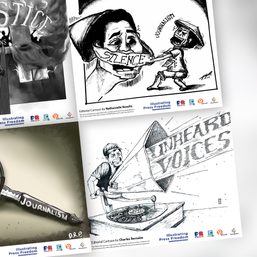

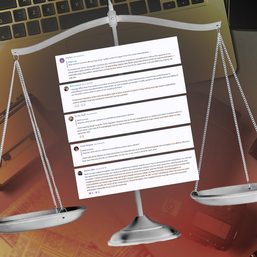
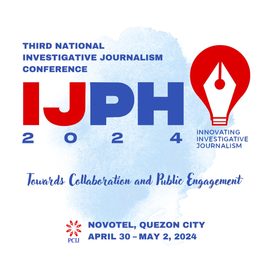
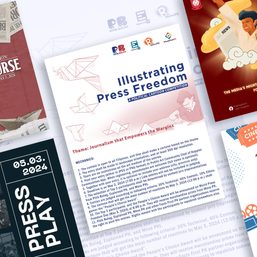


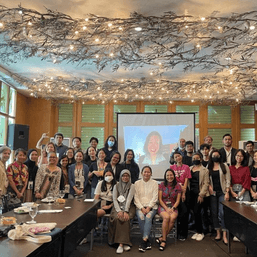

Currently self-studying investigative reporting as I aspire to practice the same in the future. I love this 🙂